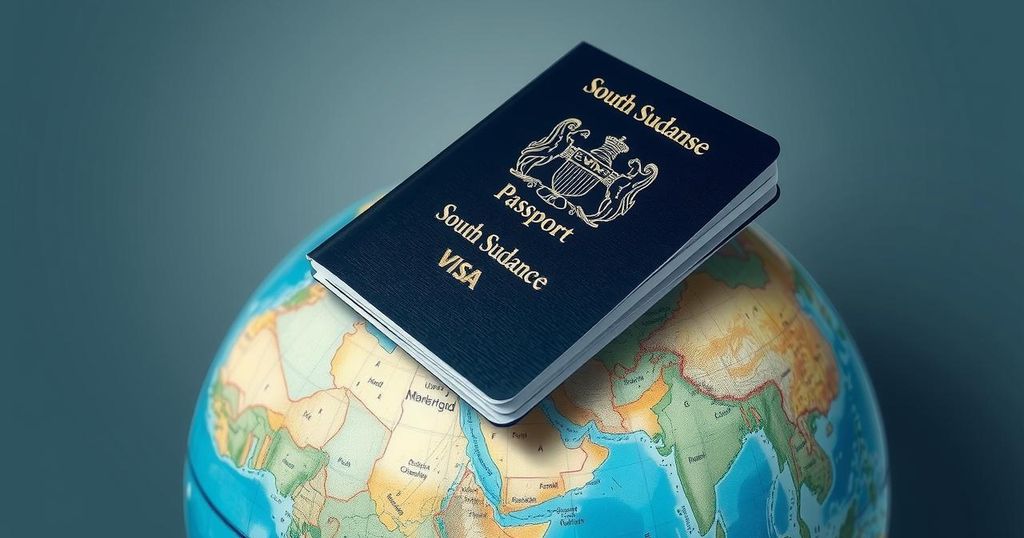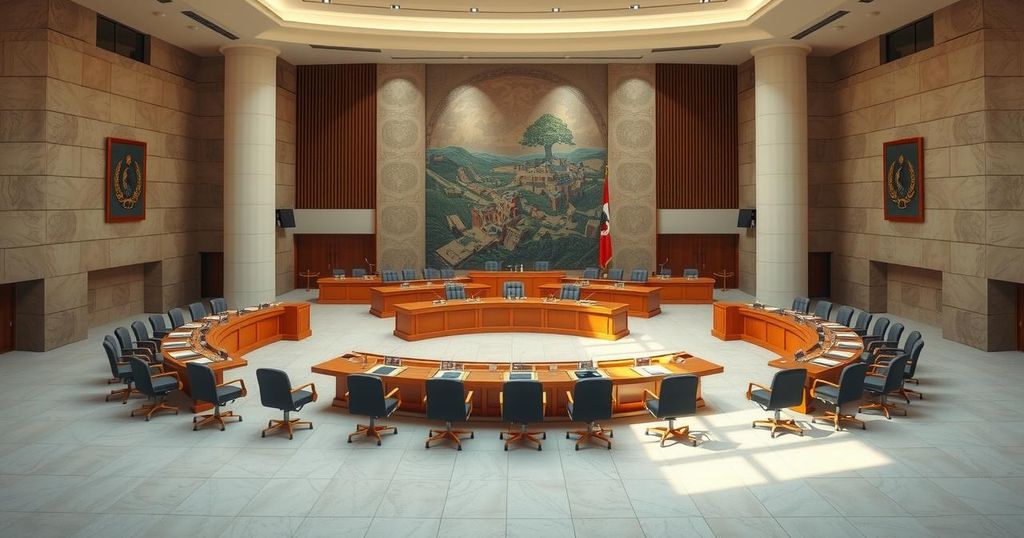Tensions rise between the US and South Sudan following Juba’s refusal to accept a deportee. US Secretary of State Rubio announced the revocation of all visas for South Sudanese passport holders as a result. The situation raises humanitarian concerns, particularly for individuals under temporary protection status in the US.
The diplomatic tension between the United States and South Sudan escalated following Juba’s refusal to accept a deportee from the US, whom South Sudan claims is actually a Congolese citizen using South Sudanese documents. In response, US Secretary of State Marco Rubio criticized South Sudan for not complying with deportation norms, stating that “Every country must accept the return of its citizens in a timely manner.” Consequently, the US announced the revocation of all visas held by South Sudanese passport holders, effective immediately.
As the transitional government in South Sudan, formed by President Salva Kiir and Vice President Riek Machar in 2020, teeters on the brink of collapse amid escalating violence, the US’s visa revocation raises concerns, particularly for South Sudanese nationals with temporary protection status (TPS) in the United States. TPS is designed to protect individuals unable to safely return to their home countries due to extraordinary conditions like armed conflict.
Khaled Mahmoud, an Egyptian writer, criticized the US’s decision publicly, asserting that it represents a rejection of its humanitarian values. International relations analyst Abiol Lual Deng expressed skepticism regarding South Sudan’s culpability, stating, “It is senseless to target a poor country over one person,” and highlighting the pressures smaller nations face from the US.
South Sudanese officials labeled the US’s actions as excessive, arguing that the deportation case at hand was an isolated incident and that they had cooperated with previous deportations. Following the controversy, South Sudan eventually accepted the deportee, identified as a Congolese national, with foreign affairs spokesperson Apuk Ayel Mayen stating, “the government of South Sudan has decided to grant Mr Makula Kintu permission to enter the country.”
Washington has yet to confirm whether it will lift the visa restrictions. The proposed travel restrictions could significantly impact various groups, including over 100 South Sudanese individuals under TPS and numerous athletes and students within the US. North Carolina Representatives Deborah Ross and Valerie Foushee actively petitioned for the reversal of the visa ban, underscoring that South Sudanese visa holders are not responsible for the political disagreements between the US and South Sudan.
In light of the recent developments regarding the US-South Sudan diplomatic dispute, the situation reflects deteriorating relations exacerbated by visa revocation actions. The implications of these actions could have widespread effects on South Sudanese individuals residing in the United States, including students, athletes, and those under TPS. Ultimately, it remains essential for diplomatic communication to resume in order to address the humanitarian concerns at stake and restore cooperative relations.
Original Source: www.dw.com




